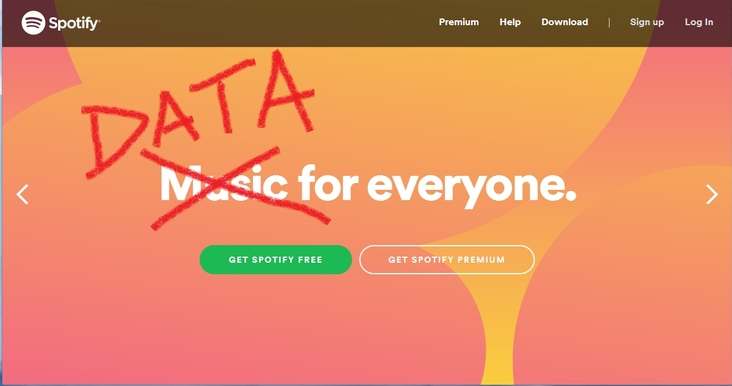Digital Thursday - Marc Esteve Del Valle, Silvia Donker, and Robert Prey, "Platform pop: Using digital methods to understand music industry and artist relations"
| When: | Th 14-03-2019 15:00 - 16:30 |
| Where: | Exposition room, Harmonie building |

The Centre for Digital Humanities' Digital Thursdays are a series of presentations, activities, and debates that showcases interesting research by a broad range of Digital Humanities scholars. On 14 March, Dr Marc Esteve Del Valle, Silvia Donker, MA, and Dr Robert Prey will give a presentation titled "Platform pop: Using digital methods to understand music industry and artist relations". You are cordially invited to attend.
Abstract
As one of the first industries to experience the disruptions that resulted from digitization, the recorded music industry has turned to ‘big data’ to rationalize decision making and to reduce risk. At the same time, as music consumption increasingly shifts to online platforms such as Spotify, researchers are employing digital methods to understand music as an industry and as a cultural practice. This presentation will introduce two different research projects - one of them funded by the CDH - that utilize music streaming data to offer insights and opportunities for both researchers and industry actors.
Spotify is being called the “new radio” for the influence it has on breaking new songs and artists, and for the important role it plays in music discovery and consumption. The first ongoing study examines the types of artists and playlists that Spotify promotes through its own platform and on Twitter. Conceptualizing Spotify as a key intermediary, this study investigates whether Spotify is leveling the playing field or entrenching hierarchies between major labels, independent labels, and unsigned artists.
Streaming data can not only provide potential insights to researchers, but also to industry actors such as music managers – if the right lens is applied. The second presentation serves as an example of how network theory and methods can be applied to help make sense of data by focusing attention on relations instead of isolated events. A case study of Spotify's related artist network for Dutch drum and bass artist Noisia will be presented to determine different kinds of powerful actors in this particular network.
About the speakers
Marc Esteve Del Valle (PhD in Information and Knowledge Society) is an Assistant Professor at the Centre for Media and Journalism Studies at the University of Groningen. His research interests focus on the interplay between new media and democracy, with a special interest in networked politics.
Silvia Donker (MA in Digital Humanities) is assistant manager at Flapper Management in Groningen, the Netherlands. The company manages internationally acclaimed and upcoming electronic musicians/producers (Noisia, Zonderling, Posij, Signal), and also runs several record labels and events. Silvia is interested in what it means to be human in the cross section of digital technology and human culture and practice. Her thesis research of a data-driven artist network was awarded “Best paper of the Young Scholars’ Workshop” at the Vienna Music Business Research Days 2018.
Robert Prey (PhD in Communication) is an Assistant Professor at the Centre for Media and Journalism Studies, University of Groningen. His research interests include creative/cultural industries, data and society, global communications, and social and media theory. Prior to and in between academic degrees he worked in radio in Canada and with multicultural television in South Korea.
